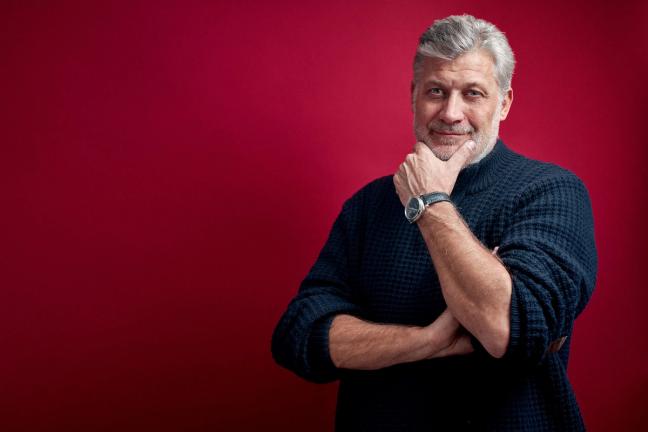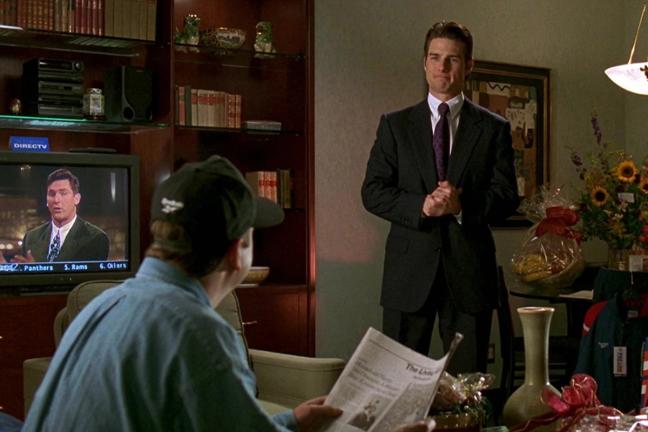Business School: How to begin rebuilding post-lockdown
Professor Stefan Allesch-Taylor on the practical steps every business owner should be taking now
In his latest Business School column, serial entrepreneur, CBE, Professor of the Practice of Entrepreneurship and Fellow at King’s College London, Stefan Allesch-Taylor, discusses the measures every entrepreneur can take to begin rebuilding their business after lockdown.
Jerry Maguire. I loved that movie. 83% on Rotten Tomatoes no less. Jerry was a successful talent agent, then he wrote a piece called ‘Things We Think and Do and Not Say; The Future of Our Business.’ It got him fired. Then came his ‘inner entrepreneur’. No spoiler alerts from me – because we all know hearing about the unleashing of an inner entrepreneur doesn’t automatically guarantee a foregone conclusion of recognition, rewards and rest. Sometimes stuff goes wrong, badly wrong.
In a post-lockdown world (we can’t say post-pandemic) things are trying to get back to normal – whatever that means for those of us in businesses affected by the pandemic (I’m guessing the vast majority). Like for like turnover, for most, is a fraction of what it was last year. And yet, like me, I suspect you have every faith in the fundamentals of your business. If only there was a sure-fire way to get hold of the money needed to weather the storm of silence we are witnessing across the board from many of our customers – and to encourage them to come back to us.

Professor Stefan Allesch-Taylor
The reference to Jerry Maguire is simply that it’s a great story about an individual who had it easy when he thought it was tough and then, when it got really tough, he held his nerve and made things happen. It’s a feel-good movie – we need some of those now – and it’s an entrepreneurial movie.
Making things happen when you feel as if an unstoppable force (that’s your bills) meet an immovable object (customers’ resilience to getting back into their hitherto reasonably predictable buying patterns) seems the new normal and is, frankly, depressing. On the practical side there are immediate actions that can be taken. One example is CBILS (Coronavirus Business Interruption Loans), we all know them, and they are available. I would say that, while there are quite a few criteria, and some hurdles too, they are a genuine opportunity to help consolidate the less financially capable (or less understanding) creditors breathing down your neck.

Tom Cruise in Jerry Maguire
When you go through your 2019 numbers and your projected cash flow for 2020 for the bank you need to remember, no matter how unpalatable it may feel, that they too need to make money. You need to make their job easy (or easier) by running through your own set of numbers in detail. I have heard of so many entrepreneurs getting angry with their bank because they didn’t ‘understand’ some aspect of their historic cost line. The set of numbers sent to your bank for a CBIL is not a draft script you can play with because the bank didn’t like the story after it read them. You must take the time to ensure, for example, that exceptional items are clearly identified as such and that contracts which have consistency are identified in the notes to accounts so as to give assurance of at least some regular income.
It’s tempting – because I have no doubt you are dealing with many, many more issues – but if you just skim, or worse, hit the forward button on those emails you’re sent from finance then you’re playing Russian roulette with possibly your only lifeline. You have to get out of the mindset that the bank is there to help you – it is not. If it was I would’ve got that loan to go travelling in Australia for a year after my A levels 150 years ago (seemed like a good idea at the time). That doesn’t mean a bank cannot be of massive help to you, if you are able to think about and give them what they need. That has to be your first thought. However, what they want is not always what they need – personal guarantees etc. are a dangerous way to do business and a belt and braces approach to risk right now is a bridge too far on their side. So be wary too.
"Now more than ever, we have to think about persuading other people and organisations to go the extra mile for us."
Of course, loans are an anaesthetic and not a cure. So let’s focus on revenue. How to get it back to where it was, or close to where it was, in the shorter term? Andrew Carnegie, the US industrialist (richer even than Rockefeller) had an adjusted fortune of around $500 billion in today’s terms and he took the view that, if he had $10,000 to start a business, spend $1,000 on the product and $9,000 on the marketing. Talk to your customers and give them reasons to come back to you. Work on that every single day in a demonstrable way.
It is easy at a time like this to just be concerned with ourselves, our families and our stakeholders but, now more than ever, we have to think about persuading other people and organisations to go the extra mile for us. A bank? Perhaps. Definitely your customers. Watch Jerry Maguire. His entire focus was on his client’s future rather than his own and it turned out… well, you’ll just have to see for yourself.
More Business School: Why great employees are your best asset in uncertain times…
Become a Gentleman’s Journal member. Find out more here.

Become a Gentleman’s Journal Member?
Like the Gentleman’s Journal? Why not join the Clubhouse, a special kind of private club where members receive offers and experiences from hand-picked, premium brands. You will also receive invites to exclusive events, the quarterly print magazine delivered directly to your door and your own membership card.


